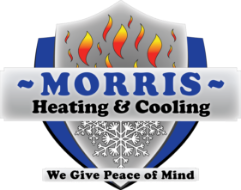What are the 4 Major Indoor Air Pollutants?
The air inside our homes is crucial to our health and well-being. Unfortunately, indoor air can be polluted by a variety of sources, including smoking, cleaning products, and other items that emit gases. Here are the four major indoor air pollutants. 1. Biological Pollutants Your home should be relatively free from excess moisture. High levels of humidity can create an environment that is favorable for the growth of mold and other biological pollutants. Maintaining the humidity levels in your home between 30% to 50% is important. Try to use exhaust fans in areas high in moisture, such as bathrooms and...
View Article